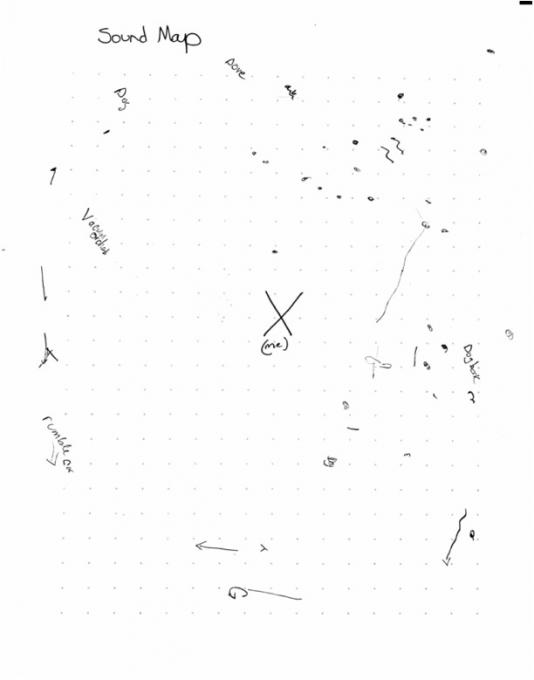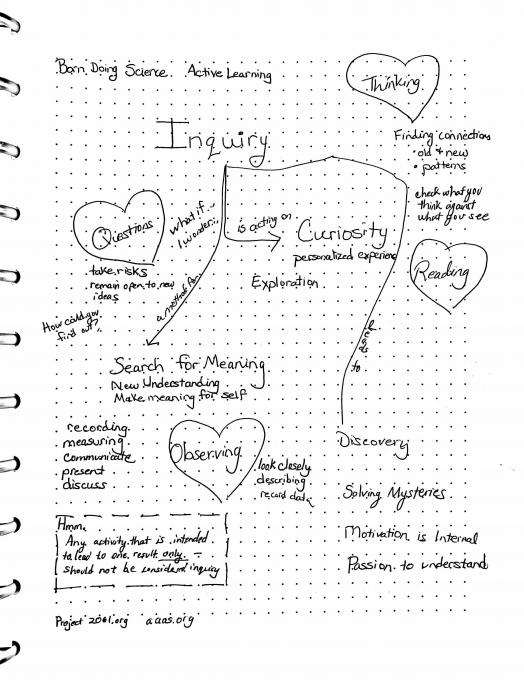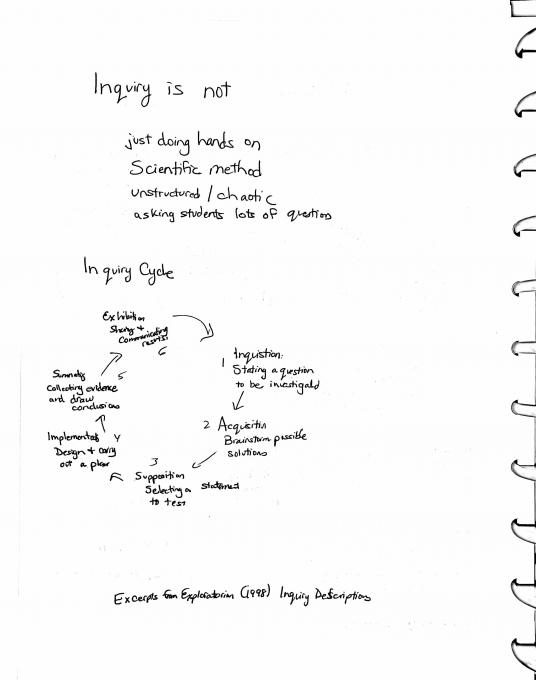Lisa
Forum Replies Created
Viewing 11 posts - 1 through 11 (of 11 total)
-
LisaParticipantI have dropped many a class project due to limited time to fully focus on the activity. I understand that the inquiry based activities is a multi phased approach. I will plan on teaching the skills of inquiry as a starting point. Each year brings a different group of students with different skill levels.
-
LisaParticipantI spent time researching eBird as teacher. I like that the data is accessible to view. Log in is required to download. With the young learners I have, we would be exploring the website together. I will create a log in for my classroom. The data that most interests me as an elementary teacher are the abundance maps. This will help them better understand why we don't always see the same birds every day. It will lead to gathering data on what birds are seen on campus.
-
LisaParticipantI promote curiosity by modeling asking questions and researching to find answers.. I share my thoughts about things we observe. I encourage students to share their ideas and thoughts as well. Open ended questions are also helpful to help promote curiosity. I am looking forward to having an "I Wonder" Board to help promote more questions and curiosity. Students are more receptive to asking questions when they know it is okay and perfectly acceptable to not know everything about the questions. Mistakes happen in my classroom and are encouraged as they are part of the learning process.
-
LisaParticipantA challenge I have is getting outside in the summer. The high temperatures and the bad air quality make it difficult to go to the nearby refuges to have a prospect of seeing more birds. It is a good reminder to prepare a backup assignment if I have an outside activity planned. Students will learn flexibility.
-
LisaParticipantOne way to be a catalyst is to create a classroom that allows students to share their thoughts safely without fear of ridicule. I encourage students to share their opinions publicly and or privately. I like to model creating a list of questions. This past year my 3rd grade students were eating breakfast in the classroom, due to Covid restrictions that closed the cafeteria. We ate outside and observed the field near my classroom. We were able to watch the birds on the ground and in the air. We were able to watch the gophers pop up. Our observations gave us a common topic that we could discuss together. I would like to be able to provide that time again this next school year. An "I Wonder" board would be a good supplement to this practice.
-
LisaParticipant
 The most impactful thing I discovered is how freeing it is to jot down scribbles instead of words that name what you hear. It is much easier to focus on just listening. I was able to quickly decide to mark down what I heard and not be concerned with marking down every bird chirp that came from the same place.
Having students make a sound map would be another way to gather data about our campus environment. Drawing a sound map with the eyes closed helps to differentiate between different noises that are happening at the same time. This practice helps students listen to objects coming closer or moving further away.
The most impactful thing I discovered is how freeing it is to jot down scribbles instead of words that name what you hear. It is much easier to focus on just listening. I was able to quickly decide to mark down what I heard and not be concerned with marking down every bird chirp that came from the same place.
Having students make a sound map would be another way to gather data about our campus environment. Drawing a sound map with the eyes closed helps to differentiate between different noises that are happening at the same time. This practice helps students listen to objects coming closer or moving further away. -
LisaParticipantI agree with Kristin comments about utilizing the outdoor/green space of my campus. I am beginning to understand how I can use Citizen Science as a basis to help my students improve their skill in writing, questioning, and observation. I like the " I Wonder" board. I have used the KWL chart before as part of my lessons, but I have the 'owner' of it. I can see with just a few adjustments to what I am comfortably doing, my students will reap the benefits with skill development.
-
LisaParticipantLiving in the agriculture region of California, I always teach lessons on water conservation. Students learn that they can make a positive impact by changing a few of the daily actions. They are always surprised to learn it is not just an adult issue. They can help educate their family members about what they can do together to help. Teaching in a rural community, students often do not feel connected to the world. “Frame the work globally and locally” to help them see why they need to learn and know about the topics. Conserving water naturally leads to studying the effects of the ongoing drought. It lets them be understand that are people who can make an impact on the world. I look forward to participating in Citizen Science to connect my students to a project and team them up with professional Scientists.
-
LisaParticipantI have not participated in a citizen-science project with my students before. I often take a moment to talk about the birds that we spot on campus as we walk to recess or lunch. I teach at an elementary school. I can expand that activity and record the number and species we see. I could have a student enter it as a classroom eBird account. It will be a project we could continue to work on throughout the school year.
-
LisaParticipantI do not teach science on a regular basis in my classroom. We switch classes and another teacher teaches Science to my class. This past year due to Covid restrictions, I led my students in inquiry based experiment. This past year, I chose an experiment with Structured Inquiry. What will prevent ice from melting? Each student had their own plastic container and we covered the ice with the material the students brought from home. We set them outside in the sun. We had one container with only ice. We were able to perform the experiment three different days. Science practices: Observation, recordings, analyzing. Modifications I would make: provide more practice in writing down observations and describing small changes. We would perform throughout the day to see if that made a difference in the material. I would also have the students communicate their results with others. I would also allow my students to try different containers. (They were wanting to test out their personal refillable water bottles to see who had the best one for keeping the ice intact and their water cold.
-
LisaParticipantI agree with Nicole's comment of inquiry being a natural part of children learning. Inquiry is a natural process of asking questions, observing and thinking. We are searching for meaning to understand something for ourselves. The skills of inquiry can be encouraged and practiced. The definitions of what 'Inquiry is Not' was helpful to me to further my understand of what Inquiry is.

 in reply to: Virtual Educator Retreat: Intro to Inquiry #824019
in reply to: Virtual Educator Retreat: Intro to Inquiry #824019
Viewing 11 posts - 1 through 11 (of 11 total)
 The most impactful thing I discovered is how freeing it is to jot down scribbles instead of words that name what you hear. It is much easier to focus on just listening. I was able to quickly decide to mark down what I heard and not be concerned with marking down every bird chirp that came from the same place.
Having students make a sound map would be another way to gather data about our campus environment. Drawing a sound map with the eyes closed helps to differentiate between different noises that are happening at the same time. This practice helps students listen to objects coming closer or moving further away.
The most impactful thing I discovered is how freeing it is to jot down scribbles instead of words that name what you hear. It is much easier to focus on just listening. I was able to quickly decide to mark down what I heard and not be concerned with marking down every bird chirp that came from the same place.
Having students make a sound map would be another way to gather data about our campus environment. Drawing a sound map with the eyes closed helps to differentiate between different noises that are happening at the same time. This practice helps students listen to objects coming closer or moving further away. 
